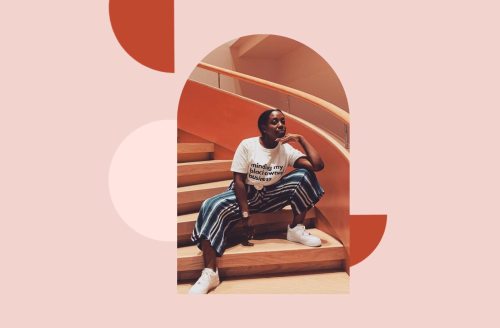The Trillfit Pledge Is Fighting for Racial Justice in Fitness Studios Across the Country
Heather C. White, founder of Trillfit, is launching the Trillfit Pledge for Racial Justice and fighting for more inclusivity in the fitness world.

Around the time that Boston-based fitness studio Trillfit had to shut its doors due to the pandemic, an onslaught of racial injustice came to the forefront of the nationwide news cycle. As the first Black woman-owned workout space in the area, founder Heather C. White saw an opportunity to help other wellness studios create change and work towards diversity. Starting Friday, White and Trillfit are launching a pledge that calls on the fitness world to actively fight for equality.
Experts in This Article
fitness expert and CEO of Trillfit
The idea came to White after her studio hosted regular community conversations about racial justice and self care. “We were addressing the news cycle and how leaders in the community were taking care of their wellness while also doing the work of protesting and organizing and advocating for change,” she says. “Each week, they started growing.” In addition to chatting with fellow studio owners, White spoke with her community and clients about what a sense of belonging means to them. After months of talks, Trillfit had garnered an active audience of boutique studio owners and wellness practitioners, many of whom came to White looking for advice on how to affect change.
“After George Floyd’s death, we saw a lot of brands posting black squares, but also coming to us with questions about how they can support [racial justice] in a way that’s not performative,” says White. Since Trillfit was already known as the most diverse studio in Boston, White figured that she and her team could build a pledge that normalizes the tenets of their own mission and values, then send it to organizations to sign. “We want to build this as an ultimate piece of collaboration to bring folks together to move forward,” she says.
The Trillfit Pledge for Racial Justice, Anti-Racism, and Equality in the Wellness Industry consists of six key principles, all of which aim to create more inclusive community cultures. Those who sign are asked to commit to the following:
- 1.Increase opportunities and decrease barriers to our services for communities of color.
- 2.Create a company culture that reflects the community we serve.
- 3.Create a culture of inclusion where people from diverse backgrounds feel their identity is valued and their voice is welcome, heard, and respected.
- 4.Advance learning about the impact of bias and systemic racism on health outcomes and create a roadmap for change.
- 5.Collaborate with local partners and invest, not extract, from the community in which my business lives.
- 6.Ensure my business supports local organizations focused on improving health outcomes in communities of color.
Already on board with the Trillfit pledge are two major platforms in the fitness world: MindBody and ClassPass, both of which work with thousands of studios across the country. White is also in talks with big names in the industry, including Barry’s, New York Pilates, and Carbon38. But she won’t stop until she sees an overhaul of the wellness industry. “We hope to see that when Black and brown people enter boutique fitness studios that they feel like they belong,” says White. “We want non-binary folks to enter spaces and feel like they’re included.”
To keep studios accountable, Trillfit’s pledge asks companies to complete all six principles by 2025, and will host checkpoints throughout the year. “Studios will receive a specific calendar with these checkpoints to follow and stay engaged,” says White. Every year on August 28, those who are involved will check in for an annual review of progress—a notable date in Black history that White chose specifically for its importance. “That’s the day that Martin Luther King Jr. gave his famous [‘I Have a Dream’] speech,” she says. “It’s the day that Emmett Till was lynched, which was a notable point in the civil rights movement. And it’s also the day that Barack Obama accepted the nomination for Democratic presidential candidate. We chose this day intentionally, since it’s a time when there has historically seen injustice and sparked change.”
Ultimately, White hopes to address the public health crisis that racism contributes to. “We hope to see people’s health improve—that’s fundamental,” she says. “We feel like we can push for a more equitable decade ahead, and want people to know that there’s a way for people to be included, and there’s a way for us to change the face of wellness.”
Sign Up for Our Daily Newsletter
Get all the latest in wellness, trends, food, fitness, beauty, and more delivered right to your inbox.
Got it, you've been added to our email list.










